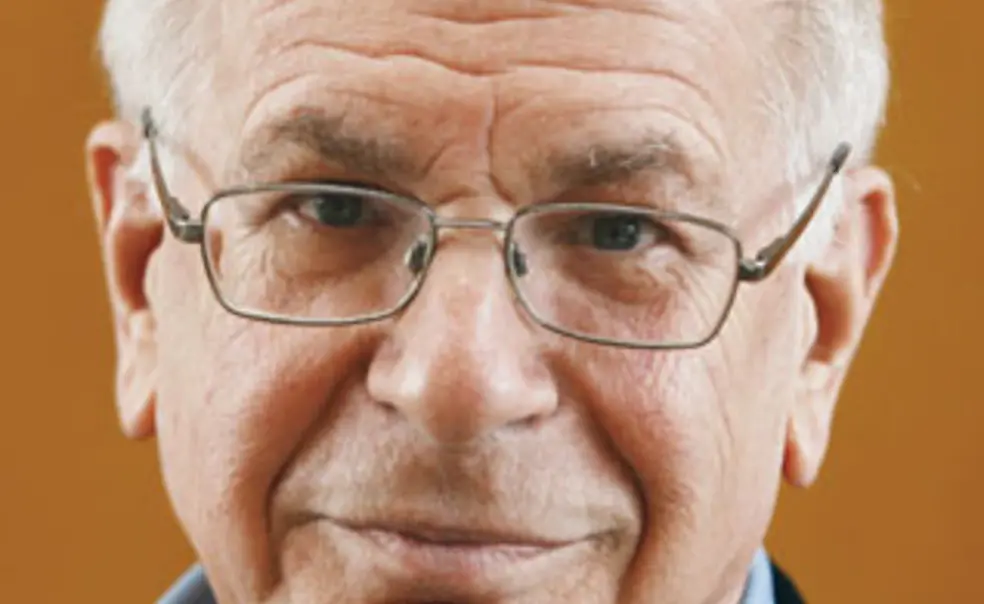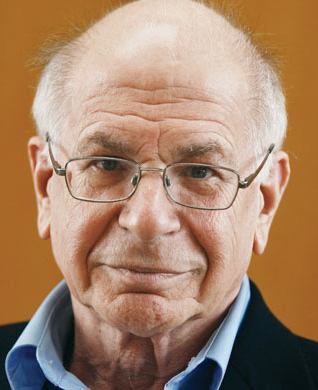Kahneman sums up a lifetime spent probing how we think
Daniel Kahneman, the Eugene Higgins Professor of Psychology emeritus at Princeton, shared the Nobel Prize in economics in 2002 for his pioneering work on decision-making. Retired since 2008, Kahneman has spent the past five years working on Thinking, Fast and Slow, a sort of intellectual memoir of his long career. In late November it was named one of the Top 10 books of 2011 by The New York Times. Kahneman discussed the book with PAW contributor Merrell Noden ’78.
In its first week, your book was No. 3 on the New York Times nonfiction best-seller list. It must be satisfying to reach such a wide audience.
It is very satisfying, of course, and completely surprising. I didn’t expect it.
Reading the book has made me much more self-conscious about the way I make decisions. I don’t know whether to thank you or curse you for that.
It will pass. Whatever discomfort you’re feeling now will not last. For a short time, that’s the effect of the book — though my primary intention was to make people more observant of other people, rather than themselves.
Much of the book looks at the interplay of what you call System 1 and System 2 thinking. Can you give us a good, quick way to distinguish between the two?
System 1 is automatic thinking, and it feels automatic. It’s the thoughts and images and emotions that we feel are happening to us. If I say “2 + 2,” the number 4 comes to your mind. You didn’t have to decipher or compute it. It just happens. System 2 is effortful thinking. That encompasses many things. It’s the deliberate focusing of attention on something, including computations. So that’s the basic distinction. With System 2-type thinking, there is a subjective sense of agency. It is something you do, not something that just happens.
You present our brains as story-writing machines. Almost reflexively, they come up with the stories that explain things most quickly and consistently.
Coherently. That is something that happens in memory. Whenever an event happens, it links causes. It recovers a cause in recent events and it infers that this is the cause of the event, and that happens automatically.
Your book doesn’t say much about moral thinking. It’s about efficient thinking — thinking that reaches the best conclusion by considering as much pertinent information as possible.
I have a brief chapter on rules of fairness. It’s pretty clear that the essence of morality is emotional. There is work by the psychologist Jonathan Haidt that has emphasized what is basically the role of System 1 in emotions. Certainly a large aspect of morality is emotional, the emotion of indignation and outrage and wanting to punish people who do things, and feeling guilt. All of these moralities are intensely emotional.
But those are after the fact ...
We have an anticipated guilt, and our thinking is certainly guided by moral emotions, in some people more than others.
You did so much of your work with Amos Tversky. Does collaboration offer a way to cancel out bad decisions?
On the contrary. We had the same intuitions. We were studying intuitive thinking and studying the basis of intuitive thinking. What we were doing was looking at problems where we knew the answer and we knew, or felt, that our intuitions were pointing in one direction. Whenever we agreed on our intuitions, we assumed that the rest of mankind probably would agree as well. So that was how we conducted our research. Then we verified it, of course.
It sounds like a wonderful friendship.
It was the best work that either of us did. We were better together than either of us was by himself.
Do you feel that you are a more careful thinker now than you were 40 years ago?
No. On some occasions I can detect, “Well, here’s a situation where I’m prone to an error ... ,” I’m reminded of it. I’m better at observing the errors of other people than observing my own. My intuitions haven’t really changed at all.
Do you consider this book a summing up of your career?
It turned out that way. There are things that happened that are not in there, but basically I wrote mostly about subjects I know about, and I know about them mostly because I’ve done research in them. So I wasn’t reporting on my work necessarily, but I was reporting on issues about which, at some time or other, I’d been thinking.
Was this book difficult to write?
Not so much that I struggled to write, although I write many drafts. But I didn’t like what I had written. And that was in part because I was writing for multiple audiences. I was writing for the public, but I wanted my colleagues and especially future students to be able to read that book and get something from it.
And are you satisfied with the reception?
It’s been so much more favorable than I anticipated that I guess I’m slowly coming to the view that I wrote a better book than I thought I had.













1 Response
Walter Weber ’81
10 Years AgoLinking morality, emotions
“It’s pretty clear that the essence of morality is emotional,” professor emeritus Daniel Kahneman says (Campus Notebook, Jan. 18). Well, that’s a very handy line if you want to justify doing something immoral! But it’s also nonsense.
First, emotions do not inherently generate moral propositions. There’s plenty of emotion involved in such things as viewing your favorite team win/lose, having someone you fancy return/rebuff your interest, and even facing a plate of Brussels sprouts. But no one infers that morality dictates some outcome or the other in those cases.
Second, the value of morality rests precisely upon its ability to restrain conduct that the emotions might favor. Some persons may want to cheat on their spouses or cheat on their taxes, but morality restrains them. A morality that simply followed emotions would be useless.
Third, morality exists even without emotional support. Yes, a person with a healthy conscience will be revolted at the thought of killing, raping, or trafficking in other human beings. But what of the cold-blooded actor whose heart is dulled to the plight of his victims? Are his atrocities therefore moral, at least as to him?
I hope Professor Kahneman was quoted out of context. Regardless, the notion that morality is essentially the rationalization of our emotions is both wrong-headed and pernicious.